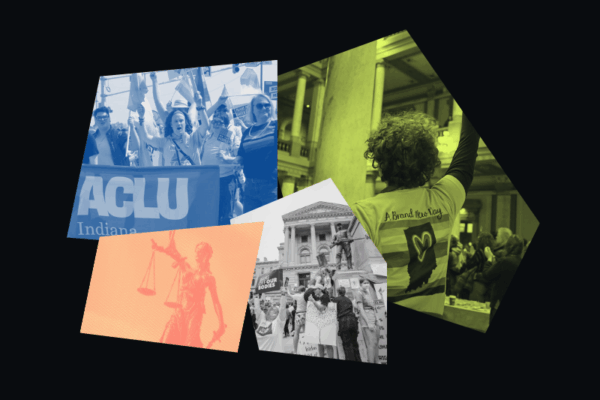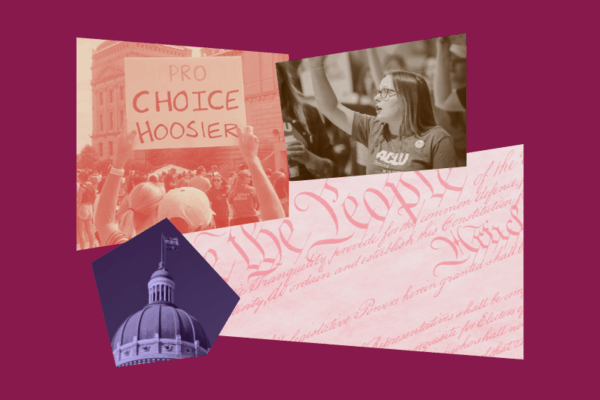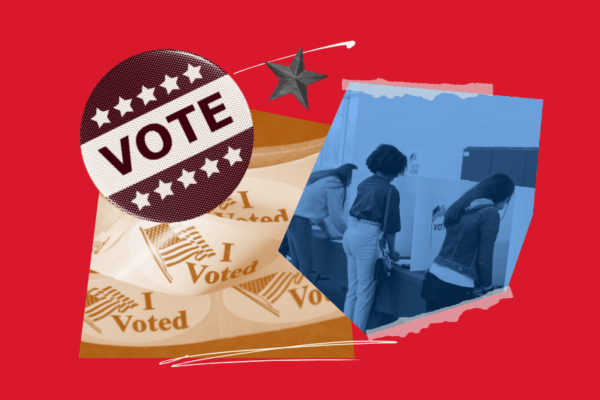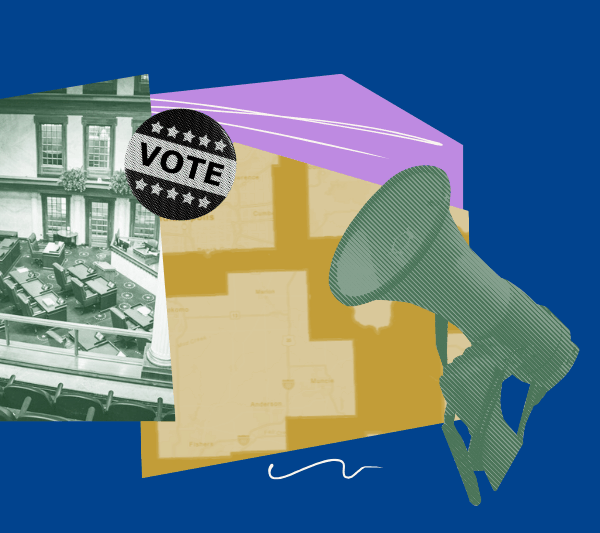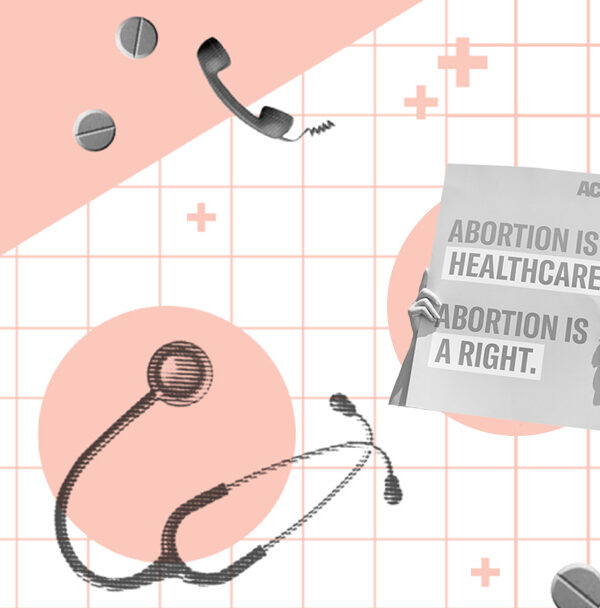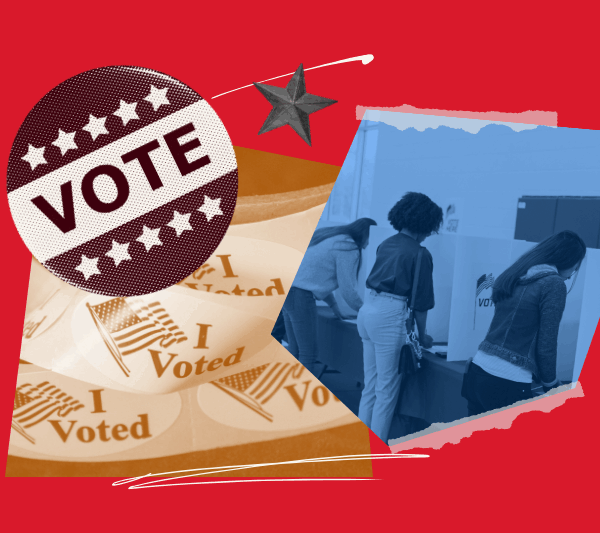Take Action
Featured Actions

Sign Up for Action Alerts
By signing up for email action alerts, you will stay informed about current issues and campaigns, upcoming events, and how you can get more involved in the fight to hold politicians and the government accountable.
All Actions
10 Actions
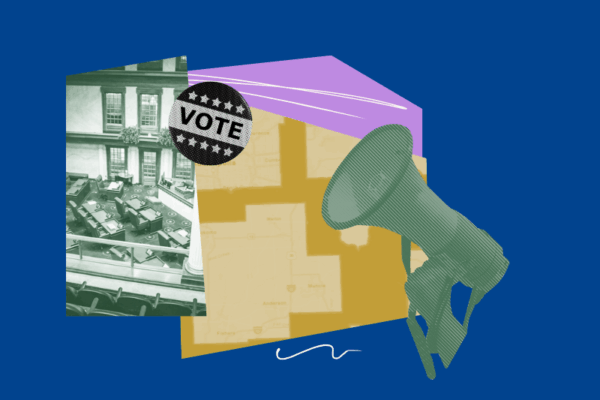
Tell Indiana Lawmakers: No Unfair Maps
Indiana lawmakers are headed to a special session to vote on mid-decade redistricting. This is an unprecedented power grab designed to weaken the votes of thousands of Hoosiers – especially Black communities – ahead of the 2026 midterm elections. Send your message to lawmakers: no unfair maps.

Let's Talk About Abortion, Indiana
Abortion is banned in Indiana, but together, we can speak up. Learn more about how to talk about abortion and take action through the ACLU of Indiana's campaign.

We Are All in for the Fight Ahead — Join Us
Are you ready to make a difference? By volunteering with the ACLU of Indiana, you can help defend the rights and freedoms of individuals across the state. Together, we can create a more just and equitable society.

Attorneys: Register for Free CLEs
Learn more about the ACLU of Indiana's 2025 CLE Program. Each year, we offer two courses, and this year, both are hybrid events, allowing attendees to join us in person in downtown Indianapolis or online via Zoom.

Get Involved Through Your Business
Join the movement. Advocating for civil liberties and civil rights means practicing your values in your business and in your community. We are looking to partner up with local and statewide leaders who are organizers, communicators, community builders, and trusted resources.

Restore Abortion Access Now
Stand with the majority of Hoosiers to demand Indiana politicians restore our reproductive rights.

Request A Speaker
Learn more about how to request a speaking engagement from ACLU of Indiana staff through our online form.
Stay Informed
Sign up to be the first to hear about how to take action.
By completing this form, I agree to receive occasional emails per the terms of the ACLU’s privacy statement.
By completing this form, I agree to receive occasional emails per the terms of the ACLU’s privacy statement.

